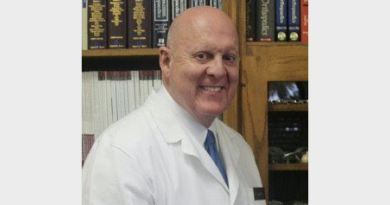Collins Hodges, PsyD, Psychologist
Get to know psychologist Dr. Collins Hodges, who serves the entire DFW Metroplex of North Texas
Dr. Hodges attended Southern Methodist University on a full academic scholarship. He earned both a master’s degree and doctorate in clinical psychology. While at SMU, Dr. Hodges distinguished himself as a research scholar and contributed to a number of articles and national presentations on the subject of cognitive vulnerability to depression. Dr. Hodges later joined the teaching staff at Baylor College of Medicine to explore the neuropsychiatric correlates of Duchenne muscular dystrophy. Dr. Hodges and his research team were nationally recognized for their scientific contributions to the field of pediatric neuroscience.
For many years, Dr. Hodges maintained a successful private practice in Highland Park. He spent several years working with both adolescents and adults specializing in a number of treatment areas, including the following:
· Depression
· Anxiety
· Grief and Loss
· Weight Loss and Bariatric Surgery Counseling
· Substance Abuse
· Self-Esteem
· Life Transitions
· Anger Management
Dr. Hodges draws on his training and experience in utilizing various treatment methods. For example, Cognitive-Behavioral Therapy (CBT) is very useful in helping the patient understand how faulty thinking patterns contribute to maladaptive behavior and negative emotions. Short-Term Psychodynamic Therapy, on the other hand, aims to explore and examine the connection between unresolved conflicts and symptoms and past dysfunctional relationships. Of course, each patient will be unique in the extent to which techniques are drawn from various theoretical orientations. What will be standard to all patients, however, will be Dr. Hodges’ attention to the therapeutic relationship. Research has demonstrated that a strong, positive relationship between the psychologist and patient is the most important variable in predicting patient response to intervention, irrespective of theoretical orientation. Therefore, Dr. Hodges places great emphasis on developing trust with his patients through genuineness, warmth, empathy, respect, and affirmation.
In addition to his work as a clinical psychologist, Dr. Hodges has received additional intensive training in bariatric behavioral health. He is a certified trainer for the ‘Am I Hungry Mindful Eating Program for Bariatric Surgery Patients’ program. With this training, psychologists can offer a comprehensive program that provides the behavioral, nutritional, physical activity, and post-surgical self-care skills and strategies that are essential for long-term success following gastric bypass, sleeve, or gastric banding.
A multidimensional approach to pre- and post-surgical care will:
· Improve your outcomes
· Decrease complications
· Increase patient satisfaction
Bariatric counseling helps patients identify the thoughts, feelings, and triggers associated with eating mindlessly. In addition to gaining a more sophisticated and global sense of self-awareness, bariatric patients learn to develop a healthier relationship with food. Patients learn to eat more mindfully by appreciating the self-punitive nature of emotional eating, identifying emotional eating triggers, learning more adaptive coping skills to deal with strong negative emotions, and developing a better understanding of the role of hunger and satiety in weight management.
Mindfulness is beneficial, because it teaches us to focus our attention and awareness on what is happening right now. This, in turn, helps us disengage from habitual, unsatisfying, and unskillful habits and behaviors. Specifically, mindful eating skills help resolve problems after bariatric surgery, including:
· Eating too quickly, taking large bites, or not chewing thoroughly
· Eating mindlessly while distracted, leading to over-consumption
· Not savoring food and therefore having difficulty feeling satisfied with small volumes of food
· Eating too much, leading to discomfort, vomiting, and/or distention of the pouch
· Grazing throughout the day and/or eating “slider” foods and high-calorie soft foods and liquids
· Struggling with emotional eating
· Not consuming enough protein or nutrient-rich foods
· Feeling guilty, deprived, or left-out in social situations
· Struggling to establish consistent, joyful physical activity
· Difficulty adjusting to life after bariatric surgery
He works as a bariatric psychologist at New You Bariatric Center, My New Beginning at City Hospital at White Rock, and the Bariatric and Metabolic Institute at Medical City Plano.
Dr. Hodges is one of only a couple of clinical psychologists in north Texas trained to work in the field of bariatrics.
Dr. Hodges has lived in Dallas since 2006. He is happily married and has a little girl. He works with his wife, who is a bariatric surgeon at New You Bariatric Center.
Learn More about Dr. Collins Hodges:
Through his findatopdoc profile, https://www.findatopdoc.com/doctor/437671-Frederick-Collins-Hodges-III-Psychologist Through his private practice, https://drcollinshodges.com/ he can be contacted at (214) 838-7171, and is located in Irving, Texas.
About FindaTopDoc.com
FindaTopDoc is a digital health information company that helps connect patients with local physicians and specialists who accept your insurance. Our goal is to help guide on you your journey towards optimal health by providing you with the know how to make informed decisions for you and your family.
